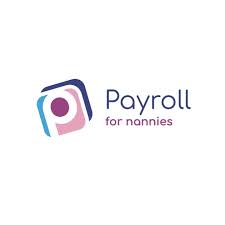If you nanny for a family who is breaking up and going through a divorce or separation, it can be a real task to help get the kids through things, as well as to carry on your general nanny duties throughout this unstable time for all involved.
Children of any age can be deeply affected by their parents divorcing, even if they appear to be coping well on the outside, and it is a known fact that the bond with a caregiver may be the most stable relationship for the child during a divorce. In this situation, the nanny is seen as a caring adult who can provide a different perspective on things and not be full of the emotion that the child’s parents would be at the time – this can be a real relief for the child.
So, here are some ways that as a nanny you can really help the parents, children, and yourself, in a divorce or separation situation:
Communication
You need to know what the parents want you to know, and more importantly what they want you to say to the child. Be as straightforward as possible, and ask the parents to sit down with you and help you to do your best by their child, by briefing you properly on things. It may be painful, but it’s necessary.
Set out your stand
If you see your position as long term and would like to carry on working for the family (and they still want / can afford to employ you), then make it clear that you understand this is a difficult time, but that you will need to know where and what hours you will be required to work from now on. Make it clear that for you to do your job, you need to be in the loop with any custody and visitation issues at the very least. Remember this is a business relationship when all is said and done, and they should still respect that.
Patience is a virtue
Whatever reaction the child has, make sure you are patient and let them go through it. The last thing the child needs is for the one stable adult influence to be pressuring them to be ‘mature’ or not get too upset. If they are allowed to go through the emotions they feel, they will eventually come through the other side, and trust you all the more.
Reassurance
Use reassuring language, and if the child has a tactile nature, then give lots of hugs. Answer any questions they may ask you as best you can, based on what the parents have told you. Reassure the child that they are NOT responsible for the divorce, and repeat this as much as possible. In all the chaos the parents may have forgotten the incredible importance of this.
Keep normal schedules and routines
Encourage parents to do the same at home. Try not to change any more things than necessary, so that the child can feel as secure and ‘normal’ as they possibly can.
Encourage parents
If you have a good relationship with the parents, try to encourage them to spend a bit more time with the child when your shift starts and ends. If, for example, a dad has moved out of the family home, when he is in your place of work with the child, leave them alone for a little while, so he can have some valuable moments when he might not have done.
Remember that above all, the most important thing is to be a stable, calm and consistently positive influence for the child at this trying time. This will help you grow as a nanny, increase the bond that you have with the family, and very importantly help the children in their time of need.
Do you agree with our thoughts on this extremely sensitive issue? Post a comment or let us know your thoughts on our Facebook page…





